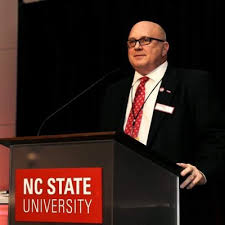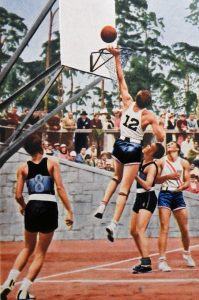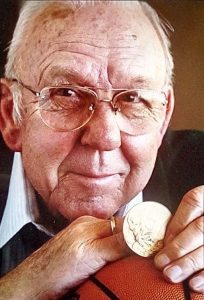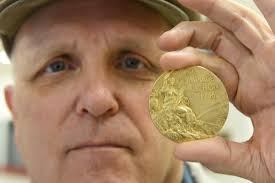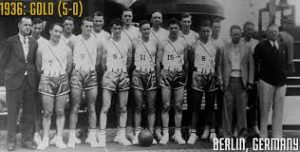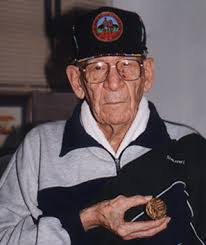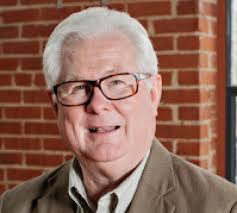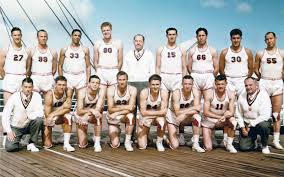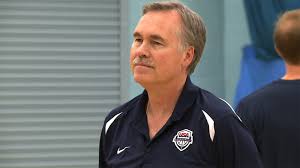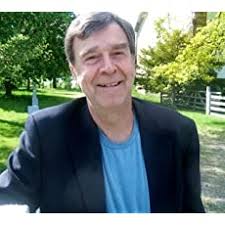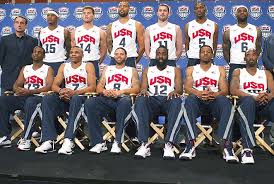The NBA Finals date back to 1947 (when they were known as the Basketball Association of America Finals) and the very 1st NCAA tourney was held in 1939. Olympic basketball competition is even older: it debuted as a demonstration event in 1904 and the men’s version became a medal sport in 1936, with the women finally getting their chance to go for the gold in 1976. The United States has dominated Olympic basketball competition from the start: the men have won 15 gold medals in the 18 tournaments they have participated in during the past 84 years, while the women have won 8 gold medals in the 10 tournaments in which they have competed during the past 44 years. Those of you who were looking forward to the 2020 Olympics opening ceremonies in Tokyo on July 24, 2020 will have to wait an extra 364 days, as the coronavirus caused a postponement until July 23, 2021. Due to the absence of college basketball since mid-March, HoopsHD’s Jon Teitel decided to fill the void by trying to interview as many prior Olympic players/coaches as possible so that you have something to read this summer while not watching the Summer Games. We continue our coverage by chatting with NC State Communication Strategist Tim Peeler about Kenny Carr winning a gold medal in 1976. Today is Kenny’s 65th birthday so let us be the 1st to wish him a happy 1!
Carr played with future Olympic teammate Adrian Dantley at DeMatha Catholic, and Sidney Lowe/Dereck Whittenburg later came from DeMatha to help lead NC State to the 1983 NCAA title: how did Hall of Fame coach Morgan Wootten keep convincing his best players to head south to Raleigh? Coach Norm Sloan had a lot to do with it. He sent his top assistant to recruit Dantley but Wootten told him to keep his eye on Carr because he would eventually become an All-American. After Carr came Hawkeye Whitney and others: there are probably a dozen guys who came here to play for Sloan/Jim Valvano. When Sloan left in 1980 to go to Florida they hired Wootten to coach here for about 3 days before he pulled a Bobby Cremins and decided that he wanted to stay a high school coach.
In 1974 he was named 1st-team Parade All-American along with future stars like Moses Malone/Phil Ford: how good a player was he in high school, and how did assistant coach Eddie Biedenbach recruit him to NC State? He was among the best players in the nation at the time. He was a big burly guy who did a lot of scoring inside. He grew up as a football player but also had the ability to step out and make some jumpers.
After David Thompson led the ACC in scoring for 3 years in a row Carr led the conference in scoring for 2 years in a row in 1976/1977: what was his secret for being a great scorer? His ability to get offensive rebounds. He was a completely different player than David but he had a similar intensity, which helped him make the Olympic team. He had the ability to go fight once he was motivated.
In 1976 he averaged 26.6 PPG/10.3 RPG: how did he balance his scoring with his rebounding? I only saw him play on TV but he was a big power forward, whereas David was a small forward.
He was a 2-time All-American: what did it mean to him to receive such outstanding honors? It meant everything to him because that is exactly what he came here to be. NC State was coming off of an amazing 3-year run from 1973-1975 that included an undefeated season and an NCAA title. They could have been in the running for 3 straight titles and Kenny came here to extend that legacy by playing with David for 1 year and then kept it going after David left.
He played for Coach Dean Smith at the 1976 Olympics: how did he like playing for his archrival school’s coach, and how close did he come to missing the team due to his inability to run a mile under a certain time? Dean always required his players to run a mile under a certain time. Kenny was 1 of the best players they had but if he had not run it in the required time then he would have indeed been left behind. There were a lot of players from the area who scrimmaged together.
What did it mean to him to represent his country, and what did it mean to him to win a gold medal? Kenny will tell you to this day that he was 1 of the last true college champions: there were Olympic boycotts in 1980/1984, then we won a bronze in 1988 before the pros took over in 1992. He is still very proud of that and said it was the most fun he ever had playing basketball.
In the summer of 1977 he was drafted 6th overall by the Lakers (1 spot ahead of Bernard King) after becoming the 1st Wolfpack player to ever leave early for the NBA: did he see that as a validation of his college career, or the realization of a lifelong dream of reaching the NBA, or other? The NBA allowed the 1st group of “hardship” players that year and he was 1 of the 1st. He obviously thought that he had done everything he needed to do in college. Some players go pro based only on their potential but he did it based on performance. He was a beast in college even though he never played in the NCAA tourney. Had he not been injured during his 1st 2 years I think that he would have had a different career trajectory.
He played 10 seasons in the NBA and his 51 FG% remains top-100 in NBA history: what made him such a good shooter? A lot of it had to do with the fact that he was such a good rebounder who made a lot of put-backs. He also had a nice jump shot, which you would not expect from a big man.
He retired in 1987 and became CEO of Carr Construction in Portland after starting the company out of his basement while playing for Portland: how was he able to make such a smooth transition from the sports world to the real world? If you look at his life up until that point he always wanted to accomplish different things. He bought a house that needed some work, spent some time doing that, and got his general contractor license: he threw everything into that and just made it grow.
When people look back on his career, how do you think that he should be remembered the most? For all of the basketball success that NC State has had, Kenny is as accomplished a player/businessman as anyone who we have produced. As part of that 5-year string of scoring champions he made his legacy as 1 of the best players in the country: it is hard to maintain that consistency over time. He proved that he could do whatever was needed to be successful but it is a shame that he never got to play in the NCAA tourney: if he had a chance to play in 3 of them like David did then I think he could have taken the team to bigger heights and had an even larger legacy. You might think that Pete Maravich is 1 of the best players ever…but he did not do much in the NCAA tourney.


